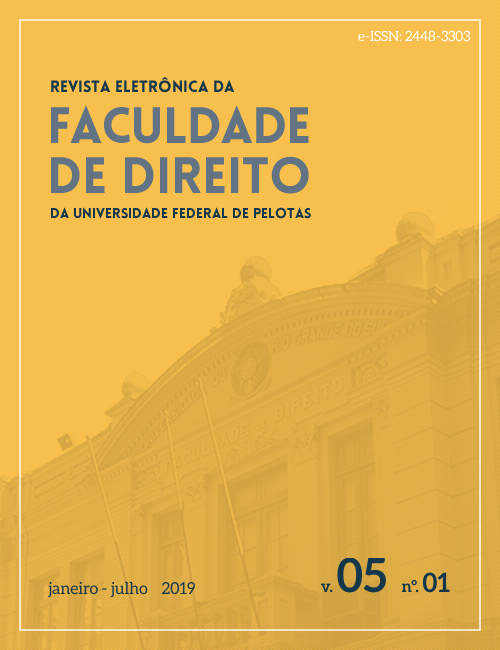Recolha coativa de provas no corpo do investigado: breve contributo crítico sobre sua validade processual-penal à luz do Tribunal Europeu dos Direitos Humanos e do Tribunal Constitucional de Portugal
Resumo
Resumo: O presente trabalho tem como objetivo principal analisar criticamente as perspectivas oferecidas pelo Tribunal Europeu dos Direitos Humanos e pelo Tribunal Constitucional de Portugal sobre a validade da recolha coativa de provas no corpo do investigado. Esse tipo de procedimento traz-nos problemas no que toca à preservação dos valores democráticos, sobretudo quando em questão o nemo tenetur se ipsum acusare. Nesse sentido, nossa hipótese é a de que tais recolhas podem ocorrer validamente sem que a força física se apresente como necessária. Assim, concluímos que, apesar dos moldes oferecidos pelas referidas cortes, a recolha realizada através da força física sobre o corpo do investigado há de ser encarada como absolutamente inválida.
Palavras-chave: Tribunal Europeu dos Direitos Humanos. Tribunal Constitucional de Portugal. Nemo tenetur se ipsum acusare. Recolha coativa de provas no corpo do investigado.
Abstract: The present paper aims to analyze critically the perspectives offered by the European Court of Human Rights and the Constitutional Court of Portugal on the validity of the coercive collection of proofs in the body of the investigated. This type of procedure brings us problems with regard to the preservation of democratic values, especially when it comes to nemo tenetur se ipsum acusare. In this sense, our hypothesis is that such collections can occur validly without physical force being presented as necessary. Thus, we conclude that, despite the molds offered by the aforementioned courts, the collection carried out by physical force on the body of the investigated is to be regarded as absolutely invalid.
Keywords: European Court of Human Rights. Constitutional Court of Portugal. Nemo tenetur se ipsum acusare. Coactive collection of evidence on the body of the investigated.
Sumário: Introdução. 1. Apontamentos sobre os aspectos processuais penais dos limites da jurisdição na produção de provas: um diálogo em torno do nemo tenetur se ipsum acusare. 2. As perspectivas do Tribunal Europeu dos Direitos Humanos e do Tribunal Constitucional de Portugal. 3. Aproximações junto à jurisprudência da Corte Interamericana de Direitos Humanos. 4. O problema da utilização da alta tecnologia na investigação criminal: como ficam as garantias individuais? Considerações Finais. Referências.


